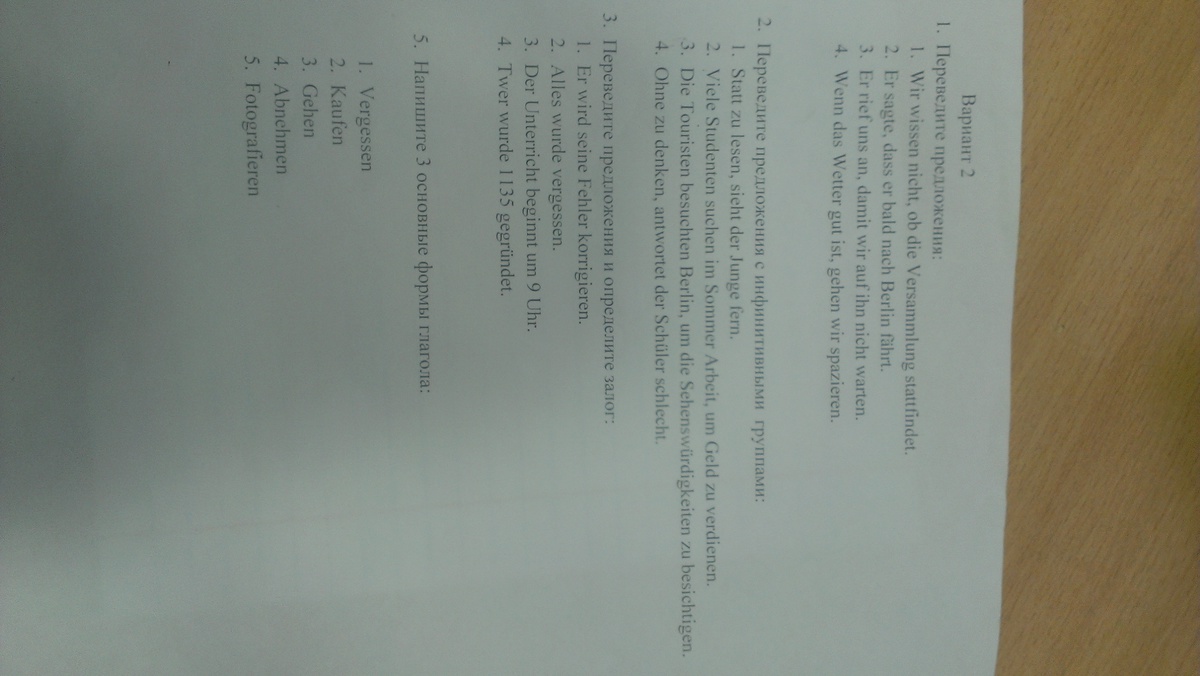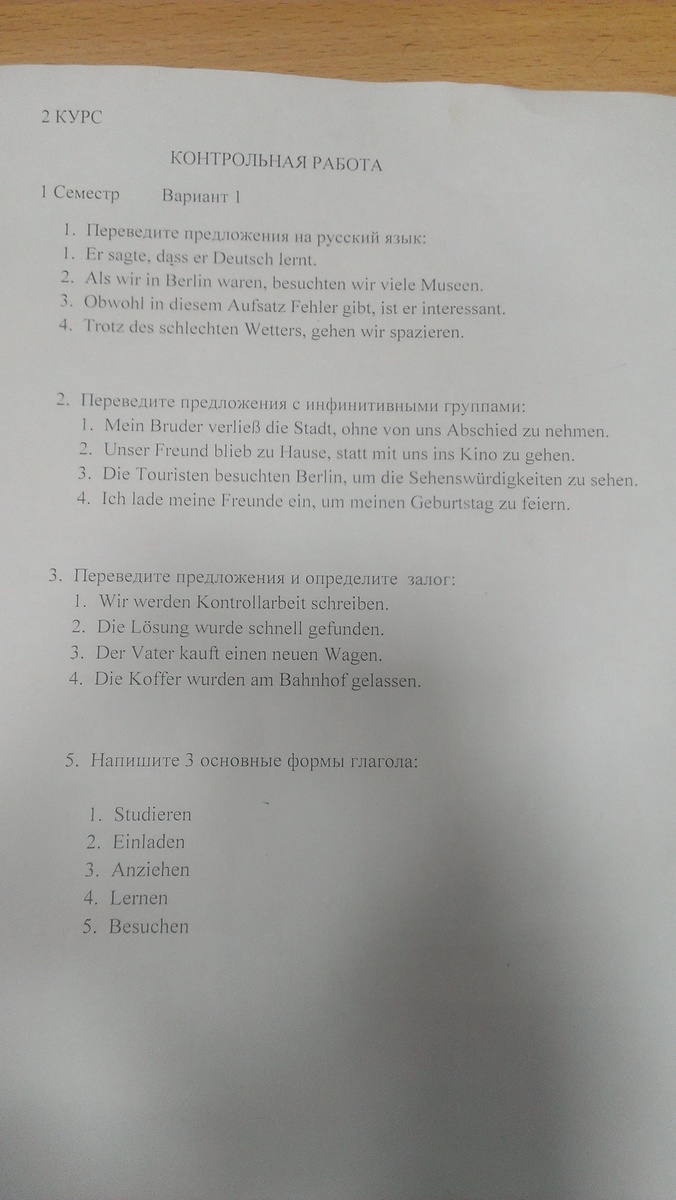Предмет: Другие предметы,
автор: waitdark
сделайте пожалуйста плиз
Приложения:


Ответы
Автор ответа:
1
1. 1. Он сказал, что он учит немецкий язык.
2. Когда мы были в Берлине, мы посетили много музеев.
3. Хотя в этой статье есть ошибка (изъян), она интересная.
4. Несмотря на плохую погоду, мы идем гулять.
2. 1. Мой брат покинул город, не попрощавшись с нами.
2. Наш друг остался дома вместо того, чтобы пойти с нами в кино.
3. Туристы посетили Берлин, чтобы посмотреть достопримечательности.
4. Я приглашаю мою подругу, чтобы отметить день рождения.
3. 1. Мы будем писать контрольную работу. Активный залог
2. Решение была найдено быстро. Пассивный залог
3. Папа покупает новую машину. Активный залог
4. Чемоданы были оставлены на вокзале. Пассивный залог
4. studieren - studierte - studiert
einladen - lud ein - eingeladen
anziehen - zog an - angezogen
lernen - lernte - gelernt
besuchen - besuchte - besucht
2. Когда мы были в Берлине, мы посетили много музеев.
3. Хотя в этой статье есть ошибка (изъян), она интересная.
4. Несмотря на плохую погоду, мы идем гулять.
2. 1. Мой брат покинул город, не попрощавшись с нами.
2. Наш друг остался дома вместо того, чтобы пойти с нами в кино.
3. Туристы посетили Берлин, чтобы посмотреть достопримечательности.
4. Я приглашаю мою подругу, чтобы отметить день рождения.
3. 1. Мы будем писать контрольную работу. Активный залог
2. Решение была найдено быстро. Пассивный залог
3. Папа покупает новую машину. Активный залог
4. Чемоданы были оставлены на вокзале. Пассивный залог
4. studieren - studierte - studiert
einladen - lud ein - eingeladen
anziehen - zog an - angezogen
lernen - lernte - gelernt
besuchen - besuchte - besucht
Интересные вопросы
Предмет: Русский язык,
автор: АнастасияVelikaja
Предмет: Русский язык,
автор: lalalalala456
Предмет: Русский язык,
автор: natalyanazarov2
Предмет: Английский язык,
автор: dianavardanovna1998